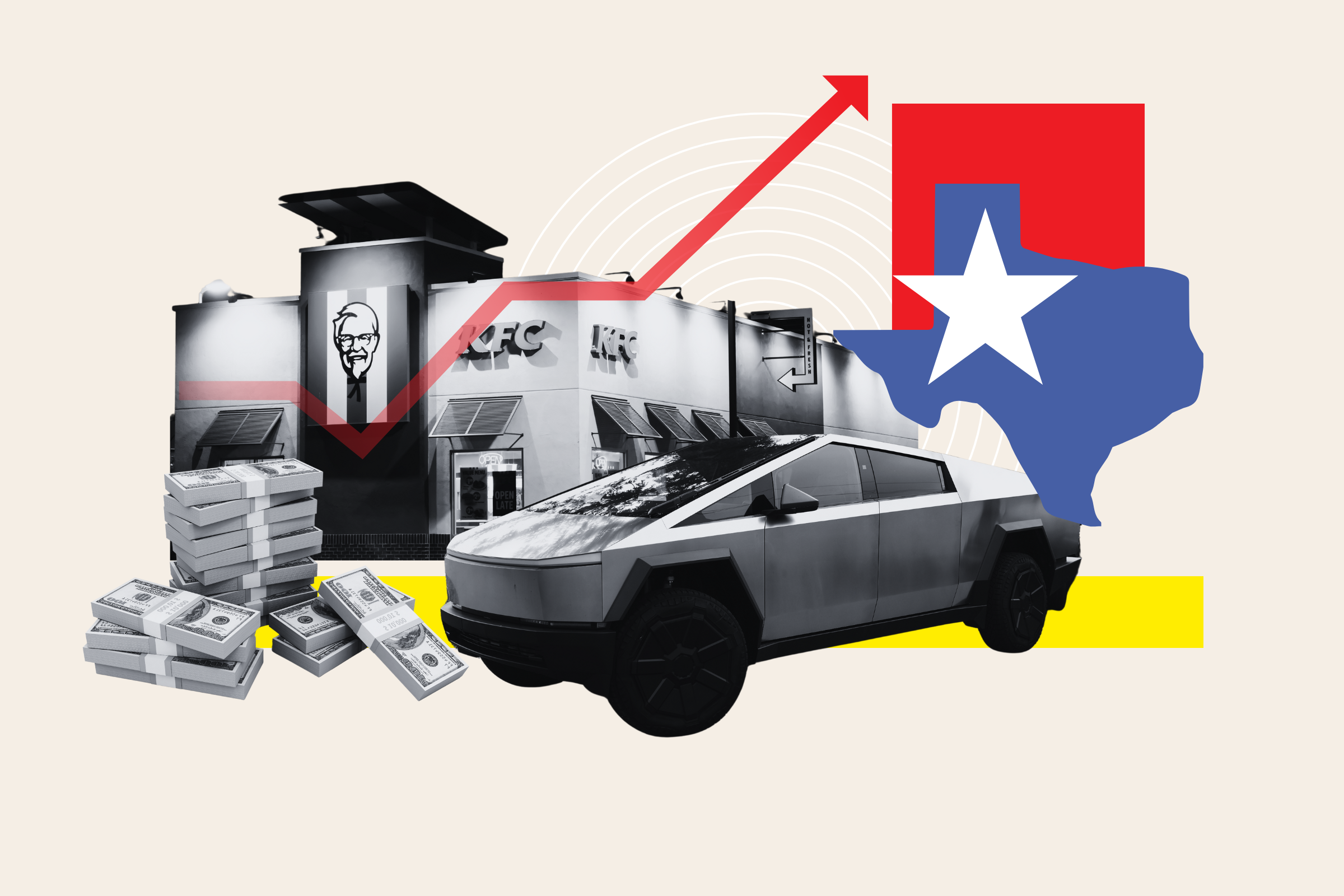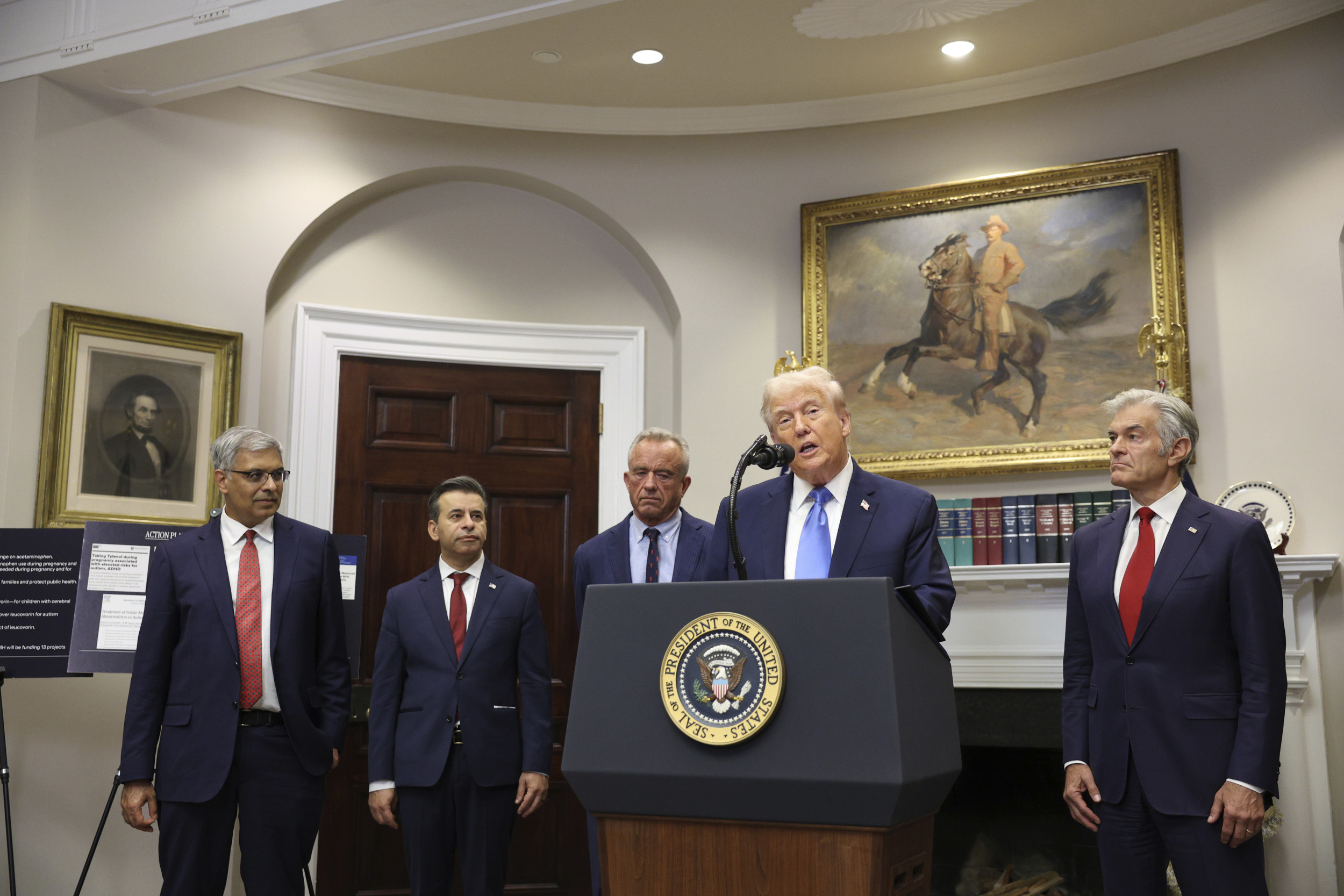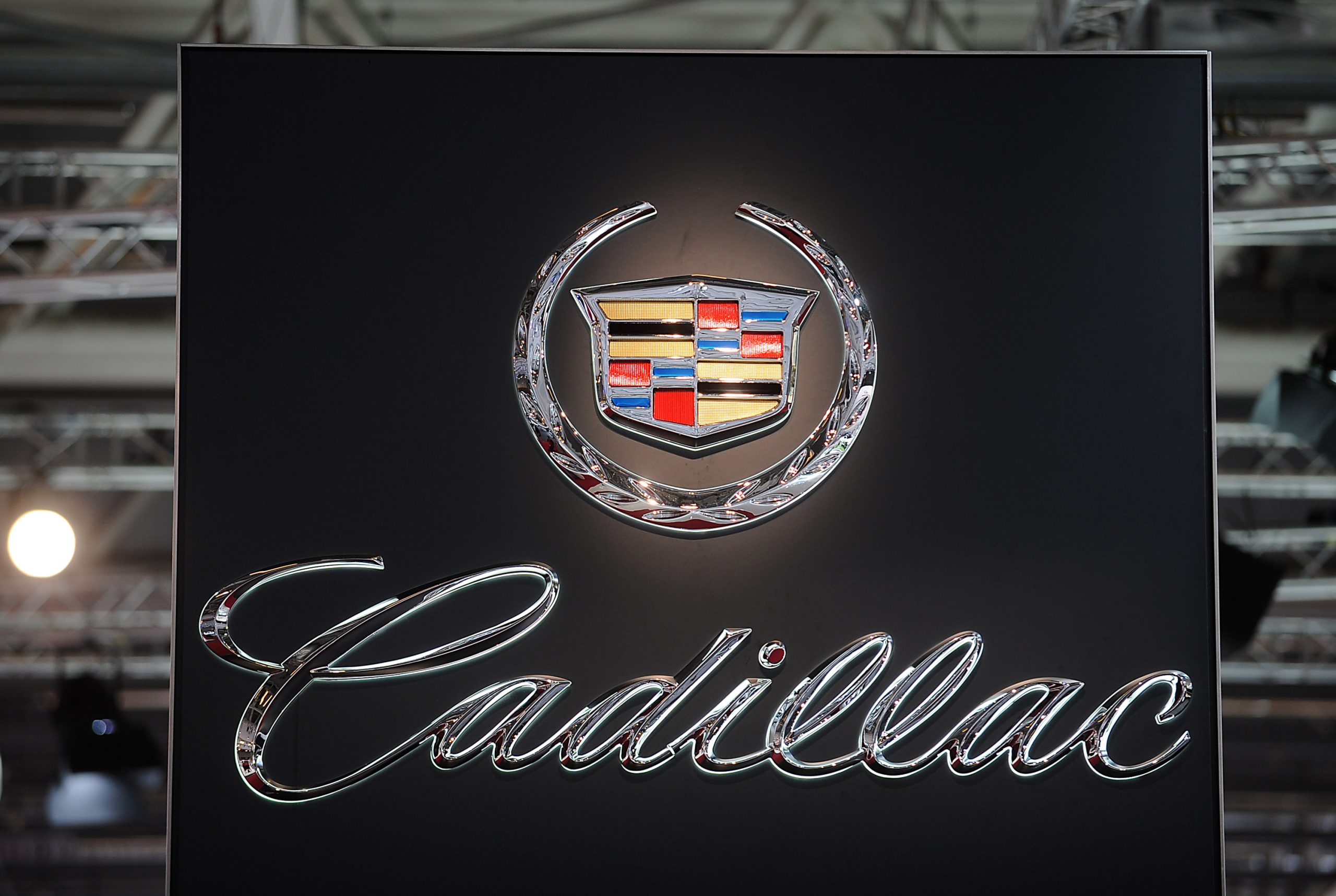
Texas has seen an economic boom over the past few years with gross domestic product (GDP) growth rates significantly outpacing the U.S. average, while a string of major corporations have announced they are moving their corporate headquarters to, or investing heavily in, the Lone Star State.
Speaking to Newsweek, several experts on the Texan economy or politics attributed this primarily to low taxation and business-friendly regulations. However, two warned there could be a future clash between corporate interests and the social conservatism of Texas Republicans who control both chambers of the state legislature as well as the governor’s office.
Business Investment
On February 18, KFC, the fast-food giant formerly known as Kentucky Fried Chicken, became the latest company to announce they are moving their headquarters from Louisville, Kentucky, to Texas choosing Plano, a city on the northern outskirts of Dallas. Speaking to Newsweek, David Gibbs, chief executive officer of KFC’s parent company Yum! Brands, said the move would “position us for sustainable growth” and “help us better serve our customers, employees, franchisees and shareholders.”
Earlier in February, real estate listing website Realtor.com announced it was transferring its corporate headquarters from Santa Clara, California, to Austin, with the company telling Newsweek the city would become “its top hiring location.”
In July 2024, billionaire Elon Musk announced he was moving the headquarters of X, formerly Twitter, and SpaceX to Texas in response to California Governor Gavin Newsom approving a move that stopped teachers being required to inform parents if their children change their gender identity.
In an X post, Musk wrote: “This is the final straw. Because of this law and many others that preceded it, attacking both families and companies, SpaceX will now move its HQ from Hawthorne, California to Starbase, Texas.”
Musk is now a close ally to President Donald Trump and heads up the recently formed Department of Government Efficiency (DOGE).
Financial services company Charles Schwab Corp. was based in San Francisco until 2021 when it shifted its headquarters to Westlake, Texas. In August 2024, oil giant Chevron announced it was moving its headquarters from San Ramon, California, to Houston.
Earlier this month, Apple announced it will build a new 250,000-square-foot manufacturing facility in Houston to support its “personal intelligence system” as part of a wider $500 billion investment across the U.S.
Texas’ plentiful land and relatively cheap energy have also made it a favored location for the large data centers used to power artificial intelligence (AI). In January, Trump announced Stargate, a combined $500 billion venture involving OpenAI, Oracle and SoftBank, which will be centered around the Lone Star State.
Texas Predicted to Be Biggest U.S. State by 2045
According to figures from the Texas Comptroller’s Office in 2024, the Texan economy grew by 4.8 percent, double the 2.4 percent that Commerce Department data shows was achieved by the nation as a whole.
U.S. Census Bureau figures show that between July 2023 and July 2024 the population of Texas rose by 562,941, with new residents attracted by the availability of work and low taxation. This gave Texas an annualized growth rate of 1.8 percent, the third highest in the U.S. behind Florida and the District of Columbia.
A report released by Realtor.com in February concluded that in 2045 Texas’ population will have surged by 35 percent to 42 million, up from the current 31 million, and would replace California as the most populous state.

Photo-illustration by Newsweek/Getty
Taxation and Regulations
Texas is just one of nine states across the U.S. that doesn’t charge any income tax on individuals or companies below a certain revenue ceiling, while its business tax rate is low and falls to zero for companies below a certain threshold.
According to a 2024 study published by Realtor.com, Texas accounted for 15 percent of new housing permits issued across the U.S., despite only making up 9 percent of its population, helping to keep prices and rents relatively cheap despite the rapid inflow of people.
Professor Benjamin Powell, an economist who teaches at Texas Tech University, attributed the state’s thriving economy to a comparatively low cost-of-living, low taxes and less stringent regulation.
“Companies are fleeing high tax, high regulation, high cost states like California, New York, and Illinois,” he told Newsweek. “They are attracted to Texas because we have lower taxes and regulation, and their workers face a lower cost-of-living here than in those other states.”
Professor Jon Taylor, a state politics expert who teaches at the University of Texas at San Antonio, agreed with this assessment, telling Newsweek: “The governor regularly preaches that corporations are relocating or building new capacity would tell you that it’s because of the so-called ‘The Texas Miracle,’ which drives perceptions that we’re a business-friendly state. He’s not wrong about the business-friendly part. We are.”
He continued: “We can rattle off the usual bullet points about a strong economy with no state income tax, relatively minimal business regulations (particularly for limited liability companies), a burgeoning talent pool created a number of world class research universities, and a leader in energy, space exploration, artificial intelligence, and tech manufacturing. Those bullet points have convinced a number of large corporations to relocate or develop facilities in Texas during the past decade or more.”
Joshua Blank, who heads the Texas Politics Project at the University of Texas at Austin, told Newsweek: “Texas politicians are pretty consistent, and aggressive about branding Texas as a pro-business state. And after over 20 years of Republican control, the rhetoric’s been followed with years of legislative and executive actions that are directly intended to be friendly to business.”
In a statement provided to Newsweek, Andrew Mahaleris, Texas Governor Greg Abbott‘s press secretary, said: “Companies keep moving here because in Texas, we move at the speed of business by cutting red tape and protecting industry from harsh job-killing restrictions and unnecessary regulations that can burden innovators elsewhere.
“Texas is the 8th largest economy in the world and the economic engine of the nation, leading all states for jobs added over the last 12 months(…)
“Texas remains number one because people and businesses are choosing our state over any other for the unmatched competitive advantages we offer: no corporate or personal income taxes, a predictable regulatory climate, and a young, skilled, diverse and growing workforce.”
Political Concerns
Taylor warned of a potential upcoming clash between the values of companies moving to Texas for business reasons and the state’s social conservatism.
Referring to states making the move, he said: “Question is whether they’re comfortable moving to Texas and investing long-term given issues such as the state’s draconian reproductive choice laws, limits on voting accessibility, dismantling diversity, equity, and inclusion policies, attacks on environmental, social, and governance standards, and harsh immigration policies.”
This question was also raised by Blank, though he was more optimistic on the outcome.
“As more companies, and especially more high-tech companies, move to Texas, it does raise the question of whether Texas’ conservative politics will clash with a potentially less conservative workforce,” he said. “So far, Texas’ politics hasn’t led companies to reconsider their decisions, and it doesn’t seem likely to in the future.”
Powell said that many of those moving to Texas actually share the state’s dominant values.
“Some Texans worry that these interstate migrants will bring their liberal values and politics with them to Texas, but the opposite seems to be the case,” he said. “The Californians leaving for Texas often share more political values with Texans than they do with other Californians.”




